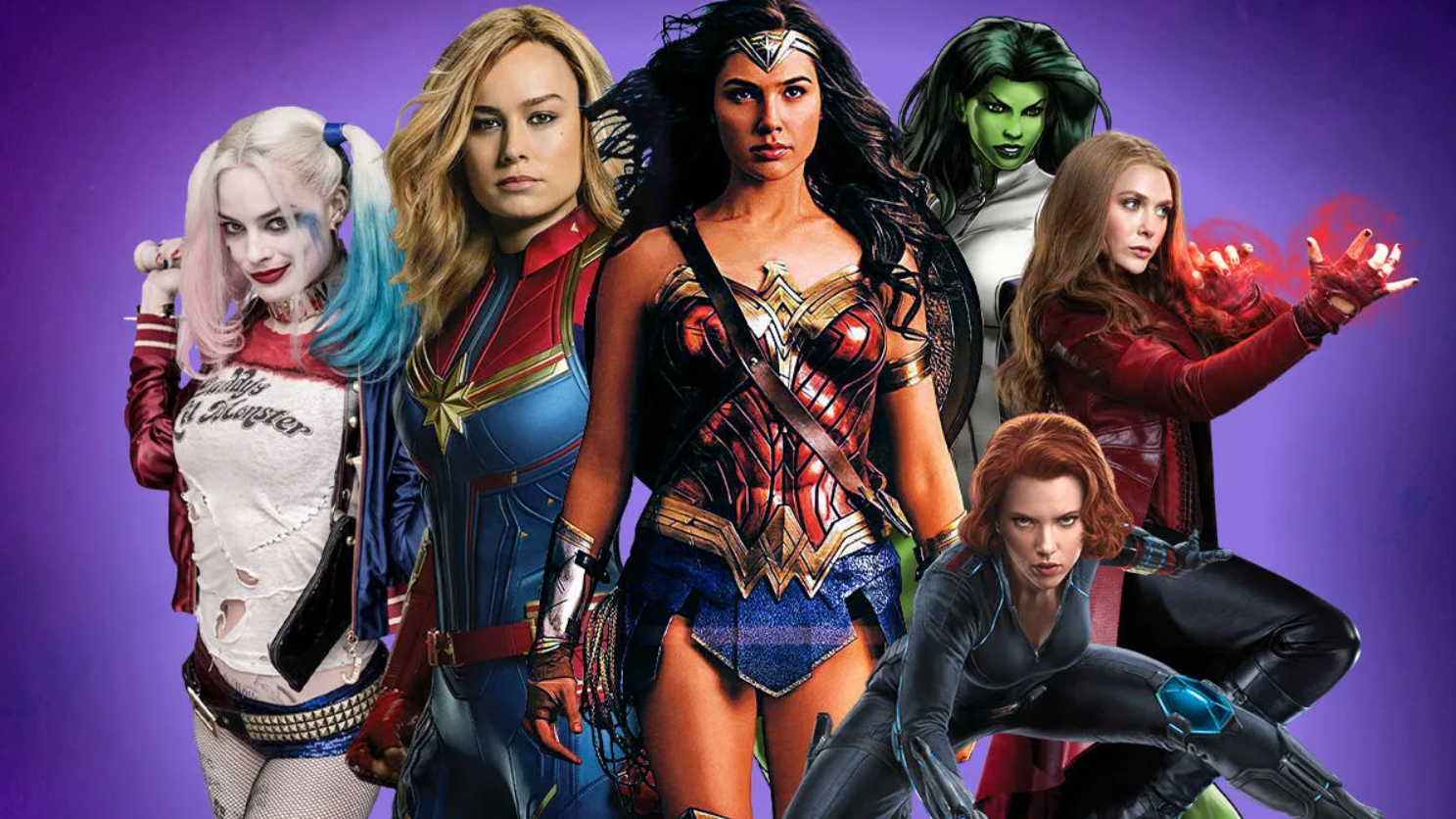The future is female for superhero movies, or is it? Photo courtesy of CNET.
TORI SATCHWELL | STAFF REPORTER | tsatchwell@butler.edu
“Ghostbusters” (1984) then “Ghostbusters” (2016). “The Karate Kid” then “The Next Karate Kid”. “Ocean’s Eleven” then “Ocean’s Eight”. Hollywood has a history of rebooting a classic male-dominated movie franchise with a female-led cast.
However, these reboots are often met with mediocre reviews, doomed to live in the shadows of their predecessors. Additionally, the movies typically flop at the box office, with all of these aforementioned movies making significantly less than their male-dominated counterparts.
Cassidy Paulk, a junior Spanish and history double major, does not understand the need to reboot these beloved classics with women instead of creating original female-led properties.
“[Hollywood] is trying to shove women into boxes and into men’s roles,” Paulk said. “They’re trying to put women in the characters of men, but women aren’t men. They’re different. Women have different experiences. [They’re] not going to be like those characters.”
While this inclusion of women in male-dominated properties seems progressive and like it busts the glass ceiling, the execution of these concepts falls flat.
The women depicted in these movies are typically flat characters with stereotypical character arcs. In many of these examples, the women focus on their male love interest instead of their heroic pursuits. Therefore, while it is great to see women on the big screen, seeing poorly written women does not further positive representation.
Superhero movies also fall victim to unconvincing female characters, especially in comparison to their male counterparts. With recent releases like “Madame Web” and “The Marvels”, audiences are unsure about the future of female-led superhero movies.
“Madame Web” was hit with terrible reviews, making it one of the worst superhero movies ever. Movie studios are even wondering if the all-female-led cast is the reason for its critical and box office failure. However, many fans speculate that the demise of “Madame Web” revolves around the script and storyline rather than the cast.
Josiah Hatfield, assistant director of new student and family programs, embraces the failure of “Madame Web”.
“I think the one thing that is nice about ‘Madame Web’ — and I think this can be the case for any marginalized identity — is there is room for a crappy women-led movie, and that is okay,” Hatfield said. “It is not the only women-led movie or women-led Marvel movie at that. People should still go see ‘Madame Web’.”
“The Marvels” also bombed at the box office, making it the lowest-grossing Marvel movie ever, only making $206 million. The director of “The Marvels”, Nia DaCosta, was the first ever Black female director for a Marvel movie, but instead of focusing on her achievement, Disney and the internet blamed her for the movie’s failure.
Female directors of color have continuously had their narratives stripped from the mainstream media, making up only 2% of the movie industry. When expanding the movie industry to allow for more underrepresented stories, some people believe it is essential to allow everyone’s story to be heard, not just the white female experience.
Fans believe that placing the blame on the directors and the actors of these movies is a cop-out. Both “Madame Web” and “The Marvels” were under-resourced, and their plots felt like an afterthought in the grand scheme of their respective universes. The overproduction of Marvel movies and TV shows has left female-led projects in the dirt.
However, all hope is not lost with female-led movies. Modern female directors, like Greta Gerwig, Chloé Zhao and Ava DuVernay, are paving the way for more women-centric stories to be told. Female-directed movies like “The Woman King”, “Promising Young Woman” and “The Farewell” all provide fresh perspectives on what it means to be a woman.
Women deserve the chance to create original stories in order to elevate not only female-led stories but also women-focused experiences. The issue with these reboots and superhero movies is that women are being thrown into a story meant for a male lead instead of adapting the film to fit the new titular character. However, movies like “Portrait of a Lady on Fire” and “Wonder Woman” emphasize the importance of women acting in a woman-centric storyline, one that was always meant for them.
Therefore, some people believe the movie industry needs to experience a shift in thinking in order to promote more movies created by marginalized identities and give underserved communities the proper resources and funding in order to create their passion projects.
Isabella Faidley, a first-year critical communication and media studies major, believes that changing the people who create media will expand the possibilities for the film industry.
“If [Hollywood] were to go to more marginalized people for their stories and [bring] them into media, it will completely switch things around,” Faidley said. “I feel like we’re kind of going in that direction with Jordan Peele’s movies, [allowing movies] to be inclusive without being stereotypical.”
By changing the narrative of who is allowed to be behind the camera, the narrative of the person in front of the camera can change for the better.



